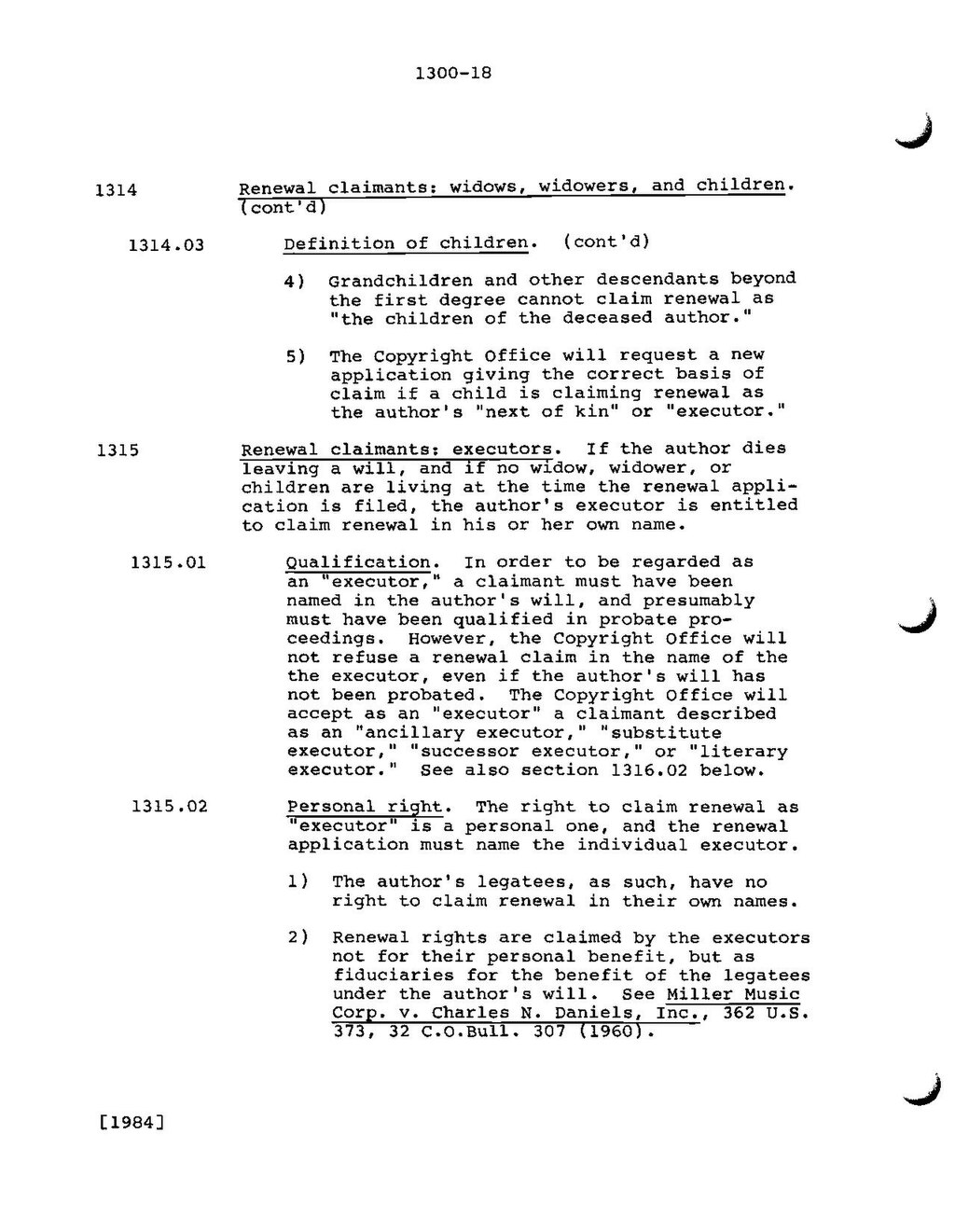1300-18
1314
Renewal claimants: widows, widowers, and children. (cont'd)
1314.03
Definition of children. (cont'd)
4)
Grandchildren and other descendants beyond the first degree cannot claim renewal as "the children of the deceased author."
5)
The Copyright Office will request a new application giving the correct basis of claim if a child is claiming renewal as the author's "next of kin" or "executor."
1315
Renewal claimants: executors. If the author dies leaving a will, and if no widow, widower, or children are living at the time the renewal application is filed, the author's executor is entitled to claim renewal in his or her own name.
1315.01
Qualification. In order to be regarded as an "executor," a claimant must have been named in the author's will, and presumably must have been qualified in probate proceedings. However, the Copyright Office will not refuse a renewal claim in the name of the the executor, even if the author's will has not been probated. The Copyright Office will accept as an "executor" a claimant described as an "ancillary executor," "substitute executor," "successor executor," or "literary executor." See also section 1316.02 below.
1315.02
Personal right. The right to claim renewal as "executor" is a personal one, and the renewal application must name the individual executor.
1)
The author's legatees, as such, have no right to claim renewal in their own names.
2)
Renewal rights are claimed by the executors not for their personal benefit, but as fiduciaries for the benefit of the legatees under the author's will. See Miller Music Cor. v. Charles N. Daniels, Inc., 362 U.S. 373, 32 C.O.Bull. 307 1960.
[1984]
